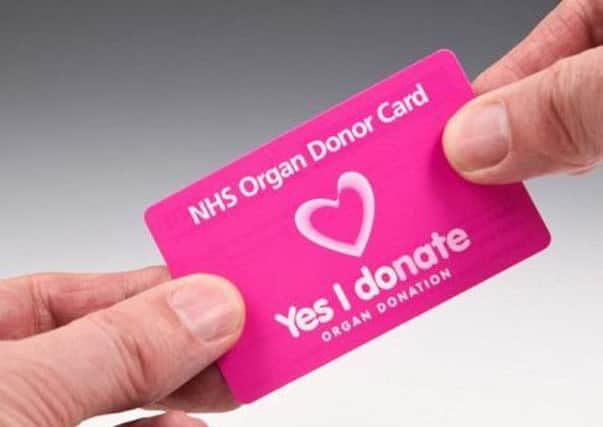One in 10 people '˜could opt out of proposed organ donor system'


The findings of research carried out by Stirling University show that one in 10 people could opt out of a system that aims to increase donation by presuming consent.
Legislation was tabled at Holyrood earlier this year to shift Scotland to an “opt-out” system for organ donation.
Advertisement
Hide AdAdvertisement
Hide AdThe proposed system would mean assuming an adult is in favour of donation unless they have stated otherwise.
However, the study highlighted a number of people have strong emotional barriers towards organ donation.
An opt-out system has been in place in Wales since 2015 and there are plans to introduce a similar scheme in England by 2020.
The study indicated campaigns for promoting organ donation focusing on facts could be less effective than those targeting feelings and emotions around the topic.
Jordan Miller co-wrote the study with Prof Ronan O’Carroll and Dr Sinead Currie, health psychologists at the faculty of natural sciences.
She said: “We found that participants who plan to opt out of the proposed system reported heightened emotional barriers towards organ donation.
“Concerns that organ donation would violate the physical integrity of the body was a particularly important barrier in this group.
“Our study considered a myth-busting strategy currently employed by the NHS – and used by other healthcare providers worldwide – where myths and misconceptions about organ donation are corrected with factual information. We found this approach had no effect on increasing donor intentions in those planning to opt out.”
Advertisement
Hide AdAdvertisement
Hide AdAlmost half of the Scottish population (45 percent) has signed up for the organ donor card scheme, requiring people to opt in to the system in order to donate.
Researchers surveyed 1,202 people in the UK on their intentions under the proposed system and found nearly 10 per cent plan to opt out, or are unsure of their decision.